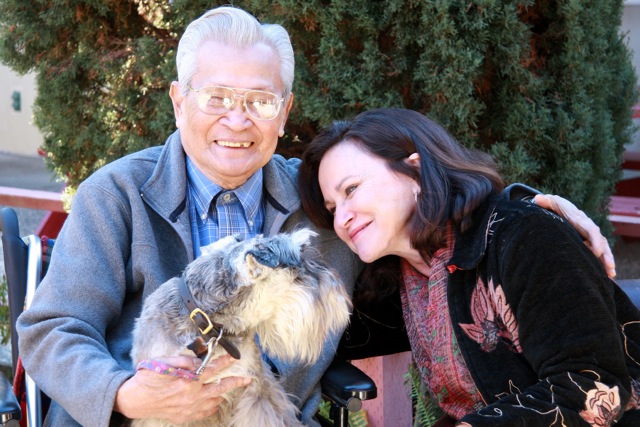Special Volunteering Opportunities - Please Help!
While we do not know when these program will happen, we know they will be needed more than ever after the isolation so many are experiencing. Please contact us if you are interested and we will keep you informed. LITA staff are following health officials mandates and working from home, but are available on email. Stay safe and healthy.
Memory Care Buddies Program
A special training program to support those volunteers who wish to be buddies for residents with memory loss.
Join a small, welcoming cohort of other volunteers who will train together over six months while visiting an individual in a facility. You will have six 2-hour trainings in how to engage and connect with someone with dementia, and will receive one on one support. To help you connect with your new Buddy, you will have the use of iPads and music, along with ‘fidget quilts’ handmade by Marin Sew n Sews.
Contact us if you are interested and we will keep you updated as the situation changes.
“MCB has provided more info on ranges of dementia, another look at it and how it can teach us. Also, the value in learning to understand repetitive stories and accommodate limitations.”
“I’ve learned so much more about dementia, both fascinating and sad.”
Help us spread the word!
caring connections
Do you have 45 minutes once a week to visit an isolated older adult in their home?
LITA is partnering with Vivalon (formerly known as Whistlestop) to reach out to lonely older adults who are homebound and see no one all week long. During this 6 month pilot, volunteers will make one social visit a week for about 45 minutes to one resident. LITA will match you with the resident and provide training and ongoing support so that you feel comfortable to visit and connect with your new friend.
Contact us if you are interested and we will keep you updated as the situation changes.
Why is this pilot important?
A large portion of homebound Marin County residents see no one on a weekly basis. According to data from Marin County’s Aging and Adult Services Area Agency on Aging (AAA), Older Adult Needs Assessment:
28% of Marin’s population is over the age of 60
15% of those older adults eat alone all of the time. This is considered a marker of possible social isolation
Women are three times as likely to eat alone all of the time than men
Social isolation has been connected to a higher mortality rate and loneliness and isolation are contributing factors to many dangerous health issues including high blood pressure, depression and Alzheimers.



